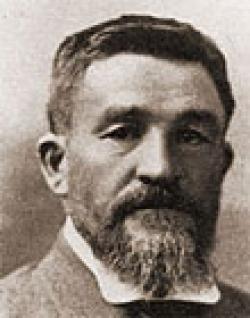
Published date
15 June 1915
General Christiaan Rudolph de Wet was a Boer soldier and statesman, regarded by Afrikaner nationalists as one of their greatest heroes. He won renown as commander in chief of the Orange Free State forces in the South African War (1899-1902) and was a leader in the Afrikaner rebellion of 1914. From 1907 to 1910 de Wet served as minister of agriculture in the Orange Free State and participated in the convention (1908-09) that framed the constitution of the Union of South Africa. After the split between Prime Minister Louis Botha and J.B.M. Hertzog, de Wet joined Hertzog in founding the National Party (1914). The breach was widened with the outbreak of World War I, when de Wet opposed Botha's decision to conquer German South West Africa (now Namibia). De Wet's efforts to organize a rebellion led to his capture at Waterbury near Vryburg on 20 November 1914. He was incarcerated with other rebel leaders in the Johannesburg Fort until his appearance and conviction in Court. He was convicted of high treason in the Bloemfontein High Court on 15 June 1915 and sentenced to six years' imprisonment and a fine of £2 000. His fine was paid within a few months from voluntary contributions. In response to representations made by several influential people and a procession of women to the Union Buildings, the Government granted him a reprieve from the six year prison sentence. The six months' imprisonment he had already suffered had affected him physically and he was an old man when he left the fort and returned to his farm Allanvale on parole. He sold Allanvale and after settling for a few years at Puntjesfontein near Edenburg, he returned to the Dewetsdorp district where he settled on Klipfontein, OFS.
References
Potgieter, D.J. et al. (eds)(1970). Standard Encyclopaedia of Southern Africa, Cape Town: NASOU, v. 4, p. 10.| Pinetree Web Christiaan De Wet, Three Years War[online] Available at: www.pinetreeweb.com [Accessed on 14 June 2013]